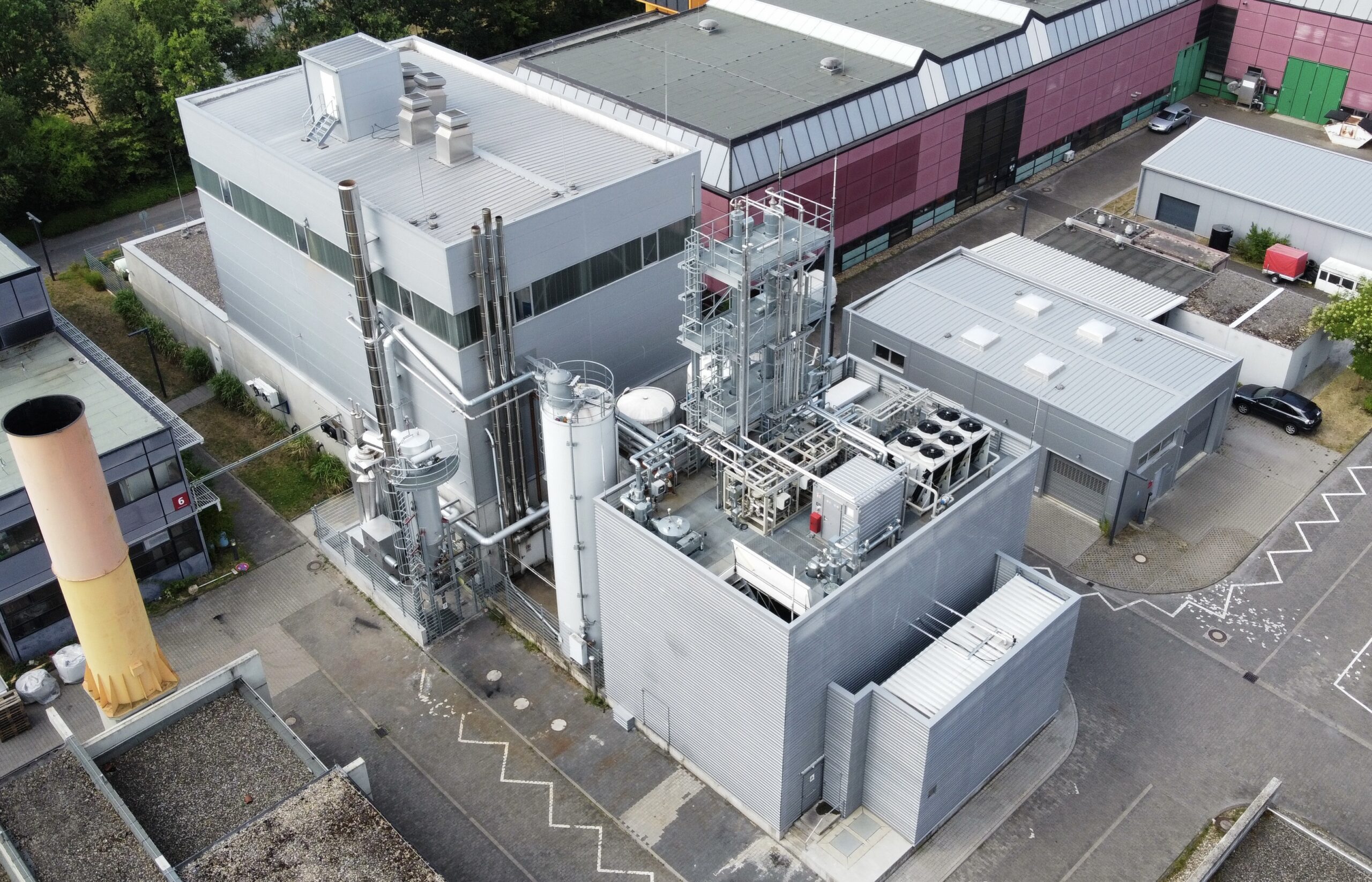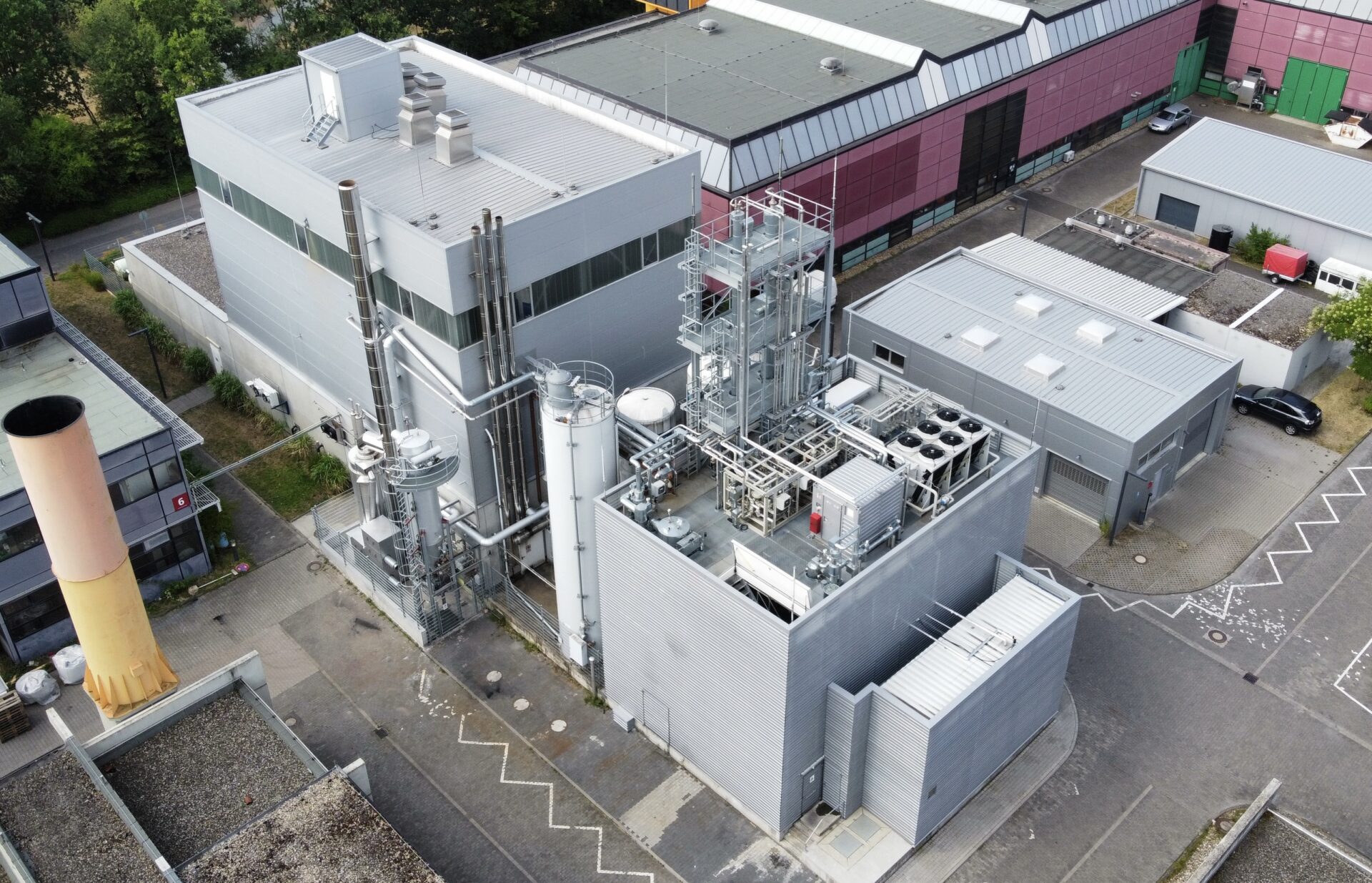
Syngas generation from organic waste through oxy-fired circulating fluidised bed gasification has been successfully demonstrated under industrially relevant conditions in the spring this year.
Technische Universität Darmstadt (TUDa) has achieved this important milestone during almost 100 hours of operation with an oxygen carrier as bed material in its 1 MWth pilot plant. The pilot plant consists of an autothermal gasifier and an innovative gas cleaning unit, which enables meeting the required syngas quality for downstream Fischer-Tropsch synthesis.
Two types of biomass, wood pellets and torrefied corn residue, were used as the feedstock, and the residual ashes are being investigated with respect to their CO2 fixation capabilities by the project partners.
“Fluidised bed gasification is a well-established technology for wood. However, the organic waste materials are providing a challenge because they have a higher tar load and are more heterogeneous. It is a common approach to use an inert bed material, like sand. But the application of an active bed material made out of metal could enhance the conversion. The catalytic activity of the bed material helps to crack the long hydrocarbons or tars, and the oxygen carrier capability improves the distribution of the oxygen in the reactor”, explained Marc Siodlaczek, Research Assistant at the Technische Universität Darmstadt (TUDa), in one of the project’s videos.
To learn more about the novel technologies applied in the CARBIOW project regarding oxy-conversion of waste biofuels, take a look at the following video:
